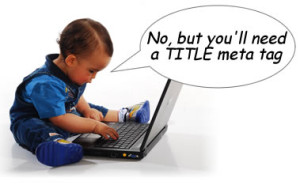 I’m sure you’ve heard of them. Someone tells you they are key so you think, I need keywords. You’re not sure what they are but you’ve heard they will help your site do better in the search engines. I often get asked about adding them to websites, so I’m writing today to set the record straight on what are Keywords and why they don’t really matter and along the way, I’ll tell you about their meta compatriots that do matter. They are the title and description.
I’m sure you’ve heard of them. Someone tells you they are key so you think, I need keywords. You’re not sure what they are but you’ve heard they will help your site do better in the search engines. I often get asked about adding them to websites, so I’m writing today to set the record straight on what are Keywords and why they don’t really matter and along the way, I’ll tell you about their meta compatriots that do matter. They are the title and description.
So let’s start with what keywords are. They are part of the meta data that is…wait…what’s meta data? Good point, I’ll start there. Meta data is data about…well…data. These are little tags that go into the html of your webpage to tell primarily search engines what the page is about. Keywords is one of the meta tags. In olden days, they were supposed to contain words that helped to point out primary things about your webpage. Unfortunately, they were over-used and abused. So Google and other search engines simply stopped using them to rank sites. So they have become effectively useless and simply take up space. Unless…the Chinese happen to be your target market. Apparently Baidu loves them!
Meta Keywords – don’t bother.
<meta name="keywords" content="don't,bother,nobody,really,uses,them" />
Instead, focus on the meta tags that do matter. Title for example is easily the most important and actually does factor into your search engine positioning. A good title should be well crafted within it’s roughly 60 character limit to accurately describe what that specific page is about. Each page should have it’s own distinct title again, reflecting that page’s content. I can’t stress enough how important this one is…in fact, it will become the link to the actual page when it shows up on Google!
 Meta Title – MUST HAVE!
Meta Title – MUST HAVE!
<title>Title is a Must and make it reflect what the page is about.</title>
While we’re talking about how things show up on Google…you know the little blurb that comes after the link (which we now know is the title)? That’s the meta ‘description’ tag. Description should be written with this in mind. It’s your opportunity to tell more about what the page is about when visitors see the results of their Google search. You’ll want the description to entice the visitor to come to your site here. No need to stuff it with key terms, Google doesn’t factor it into their searches. Again, it’s for the human visitor more than anything else. Interesting to note; if you don’t have a description meta tag, Google simply takes the first bit of text it finds on the page and makes that the blurb that follows the link on the search results.
Meta Description – Should have, entice visitors.
<meta name="description" content="Should describe the page for the visitor to entice them to click your link in the search engine. It can be roughly 160 characters in length." />
So now you know what the meta tags are and can see where you should put your effort when it comes to prioritizing what they should be. These are really the fundamentals that every webpage should have (if you ever see ‘untitled’ in the top of a web page on your browser, it means the person forgot their title tag!).  So armed with this, have a look through your site and see how well it does. If you’re missing the ‘keywords’ don’t sweat it. If there isn’t a Title, get one and fast!
So armed with this, have a look through your site and see how well it does. If you’re missing the ‘keywords’ don’t sweat it. If there isn’t a Title, get one and fast!